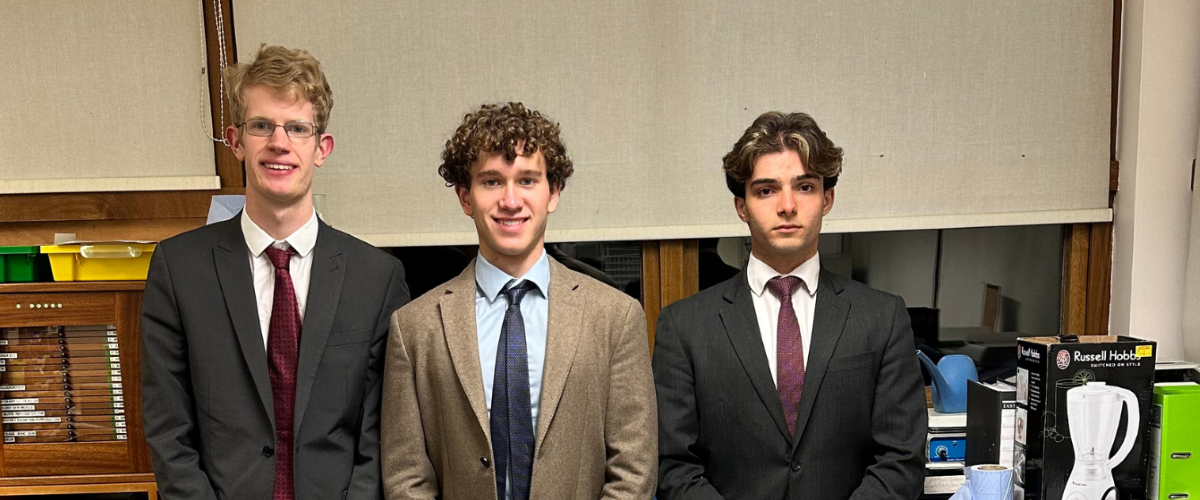

Earth Prize Finalists
Global Sustainability Competition
Two teams of Winchester College pupils were selected as Earth Prize Scholars in the 2023 competition, placing them in the top 37 teams, out of 1290 entrees worldwide. The Sixth Form pupils are all members of the College's Sustainability Society.
The Earth Prize is an annual, global competition, run by Geneva-based The Earth Foundation, focused on environmental sustainability, which rewards the teams whose projects have the most potential to address environmental issues. For the 2023 competition, there were entrants from over 1000 schools across 116 countries and territories around the world. On 13 February the Foundation announced the 37 teams selected as The Earth Prize 2023 Scholars: the teams with the best submissions of the competition. The ten finalists will be announced later in the month.
Winchester's two teams, Veggie for Schools and Bactoplastics (banner photo) explain more about their projects:
Veggie for Schools
The team set out with the idea that vegetarianism done badly in schools creates negative stigmas against more sustainable eating, and that excess meat consumption is a big contributor to climate change because of its inefficiency and all of the land it takes up." Sixth Form pupil, Jack Pascoe, explained the team's solution: "We proposed creating a cookbook of meals that schools can produce easily with their budgets and available equipment, which are nutritious, sustainable, and appetising to the children. Not only would schools become more sustainable but these greener-eating habits may spread via the children to encourage more households to consume less meat."

Veggies for Schools Team
Bactoplastics
The team is producing a complete protocol for industrial production of biodegradable plastics, polyhydroxyalkanoates, from food waste using genetically engineered bacteria. Polyhydroxyalkanoates(PHA) are fully biodegradable thermoplastics, which are naturally produced by microorganisms for energy storage. Polyhydroxyalkanoates are already produced commercially, but their feasability is limited due to high production costs. This is the result of challenges in purification, high cost of the raw resources, and low production yield.
The team is conducting the project in the Biology department under the supervision of the Biology dons. Speaking on behalf of his team, Maks Fedorovskyy, set out the details of their plan: "We have designed a novel, cost-effective method for their production, which addresses the primary challenges in contemporary industrial PHA production. Our plastic substitutes most petroleum-based plastics for packaging (39.7% of global plastic production) and has potential to reduce plastic waste production by 67% in the UK. We are genetically engineering the bacterium Bacillus megaterium to upregulate PHA synthesis capability, and using inexpensively pre-treated food waste as the substrate for growth.
Our product reduces pressure on landfills due to its 7-week degradation time, while repurposing up to 1.5 million tonnes of food waste annually. We are in the laboratory 20 hours/week, conducting dozens of biochemical experiments to identify optimal conditions for PHA production and food waste pre-treatment. By the end, we hope to set up a continuous bioplastic production system here in Winchester using locally procured food waste."
Success in the Finals
On 27 February the Earth Foundation announced that Bactoplastics is one of the Finalists, alongside just nine other teams. In April, one of the Finalist teams will be announced as The Earth Prize Winner and will receive a prize of $100,000, to be split in half between the team members and their school. Three runner-up schools will be awarded $25,000 each.

 Head back to stories
Head back to stories